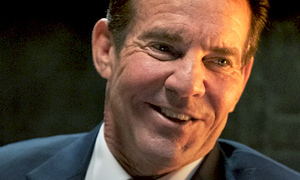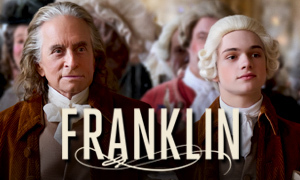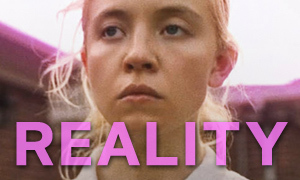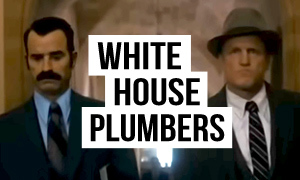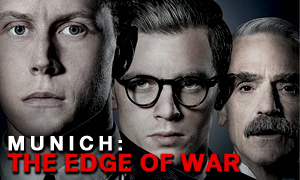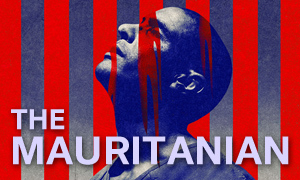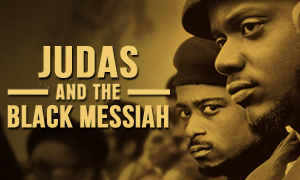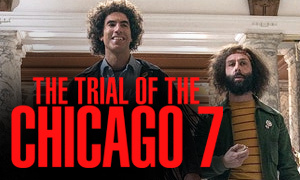How Accurate is "Reagan"? History vs. Hollywood
Dennis Quaid
Born: April 9, 1954
Birthplace:
Houston, Texas, USA
Ronald Reagan
Born: February 6, 1911
Birthplace: Tampico, Illinois, USA
Death: June 5, 2004, Los Angeles, California, USA (alzheimer's disease)
Penelope Ann Miller
Born: January 13, 1964
Birthplace:
Los Angeles, California, USA
Nancy Reagan
Born: July 6, 1921
Birthplace: New York City, USA
Death: March 6, 2016, Los Angeles, California, USA (congestive heart failure)
Bio: Film Actress who Became Reagan's Wife and the First Lady
Olek Krupa
Born: March 18, 1947
Birthplace:
Rybnik, Slaskie, Poland
Mikhail Gorbachev
Born: March 2, 1931
Birthplace: Privolnoye, Russian SFSR, Soviet Union
Death: August 30, 2022, Moscow, Russia
Bio: Leader of the Soviet Union
Mena Suvari
Born: February 13, 1979
Birthplace:
Newport, Rhode Island, USA
Jane Wyman
Born: January 5, 1917
Birthplace: St. Joseph, Missouri, USA
Death: September 10, 2007, Rancho Mirage, California, USA
Bio: Actress who was Reagan's First Wife
Trevor Donovan
Born: October 11, 1982
Birthplace:
Bishop, California, USA
John Barletta
Born: September 24, 1944
Birthplace: Somerville, Massachusetts, USA
Death: July 3, 2018, Santa Barbara, California, USA
Bio: Secret Service Agent in Charge of President's Equestrian Detail
Lesley-Anne Down
Born: March 17, 1954
Birthplace:
Wandsworth, London, England, UK
Margaret Thatcher
Born: October 13, 1925
Birthplace: Grantham, England, UK
Death: April 8, 2013, London, England, UK (stroke)
Bio: Prime Minister of the United Kingdom
Dan Lauria
Born: April 12, 1947
Birthplace:
Brooklyn, New York, USA
Tip O'Neill
Born: December 9, 1912
Birthplace: Cambridge, Massachusetts, USA
Death: January 5, 1994, Boston, Massachusetts, USA (cardiac arrest)
Bio: Speaker of the House (Democrat)
Kevin Dillon
Born: August 19, 1965
Birthplace:
Mamaroneck, New York, USA
Jack Warner
Born: August 2, 1892
Birthplace: London, Ontario, Canada
Death: September 9, 1978, Los Angeles, California, USA (heart inflammation)
Justin Chatwin
Born: October 31, 1982
Birthplace:
Nanaimo, British Columbia, Canada
Jack Reagan
Born: July 13, 1883
Birthplace: Fulton, Illinois, USA
Death: May 18, 1941, Santa Monica, California, USA (heart attack)
Bio: Father of Ronald Reagan
Amanda Righetti
Born: April 4, 1983
Birthplace:
St. George, Utah, USA
Nelle Reagan
Born: July 24, 1883
Birthplace: Fulton, Illinois, USA
Death: July 25, 1962, Santa Monica, California, USA (cerebral hemorrhage)
Bio: Mother of Ronald Reagan
Which parts of Ronald Reagan's life does the movie cover?
Directed by Sean McNamara (Soul Surfer), the biopic follows Reagan throughout his life, from his childhood to his time as the 40th President of the United States to his final days on the Reagan Ranch battling Alzheimer's. The film touches on the communist efforts to gain control of the Hollywood unions, the unrest on college campuses in the late 1960s, the 1981 assassination attempt, the downing of Korean Air Lines Flight 007 by the Soviet Union, Reagan's election victories and defeats, his tax-cut battle, and the Iran-Contra Affair. It also chronicles his personal life, briefly touching on his marriage to actress Jane Wyman (portrayed by Mena Suvari) which ended in divorce, before focusing on his long-standing marriage to actress Nancy Davis.
Was Ronald Reagan's father an alcoholic?
Yes. During Ron's childhood in Illinois, his father, Jack Reagan, worked as a salesman, mostly selling shoes. The true story confirms that his efforts to provide for his family often got sidetracked by his alcoholism, and the family struggled financially. After Ron broke through as an actor, he used some of his earnings to move his parents to California and buy them a home.
Is Ronald Reagan's transition from acting to politics depicted accurately?
For the most part, yes. Reagan believed that WWII derailed his movie career and prevented him from reaching the level of stardom of big-name actors like Henry Fonda or Jimmy Stewart. Just prior to the U.S. entering the war, he acted in the acclaimed films Knute Rockne, All American (1940) and Kings Row (released in 1942, several months after the U.S. entered the war). The latter is often considered to be his best performance. Like other industries, Hollywood largely refocused its output to support the war effort.
Due to bad eyesight when he joined the military, Reagan was told he could be of most use to his country by continuing to make movies. He reported to Culver City, California to work in the U.S. Army's First Motion Picture Unit. Having played a pilot in earlier roles, Reagan was the natural choice to appear in and narrate training films for the Army Air Force. He made approximately 400 such films. To many Americans, he was the face and voice of the soldiers who appeared in often-blurred newsreel footage.
Ronald Reagan's shot at being a top-billed Hollywood actor had faded by the war's end. His moment had passed. Some argue that his potential as an actor was always going to be limited to supporting roles, as he lacked the acting chops of a Cary Grant or a Humphrey Bogart. Others, who disagree with his politics, often attempt to disparage him as an actor. However, his acting career spanned nearly 30 years and more than 50 films. He also acted in more than 15 TV series. Arguably, he was the equivalent of a James Marsden or a Patrick Wilson of today, a prominent actor who wasn't an A-list leading man but was still very recognizable. The movie makes it seem like his acting career ended well before it did. However, he continued to steadily appear in movies and TV series all the way up until the mid-1960s.
As a result of the war, he became increasingly interested in politics — first within the film industry and then nationally. He didn't shy away from speaking out about the growing threat of communism. He served as president of the Screen Actors Guild before becoming the Governor of California.
Is the Reagan movie based on a book?
Yes. Reagan is based on Paul Kengor's 2006 book The Crusader: Ronald Reagan and the Fall of Communism. The filmmakers also consulted with or interviewed 50 of Ronald Reagan's friends and aides, including former Secretary of State George Schultz.
Is Jon Voight's character, KGB agent Viktor Petrovich, based on a real person?
No. In the Reagan movie, Viktor Petrovich (Jon Voight) is a retired KGB agent who years earlier had been assigned to follow a young actor named Ronald Reagan. An up-and-coming politician comes to visit Petrovich at his flat in the Kremlin to ask him questions about his past. Petrovich tells him about the work he did following Reagan. The Viktor Petrovich character is fictional and is not directly based on a real-life former KGB agent. Paul Kengor, the author of the book on which the film is based, said that the character "is based on a number of KGB agents and Soviet analysts who we now know were tasked with keeping tabs on Ronald Reagan for many years."
Did Democrat House Speaker Tip O'Neill visit Reagan's bedside and pray with him after he was shot?
Yes. The Reagan true story reveals that O'Neill was one of the first to come to President Reagan's bedside after he was shot during the March 30, 1981 assassination attempt. Upon entering the President's room at George Washington University Hospital, O'Neill grasped both of the President's hands. "God bless you, Mr. President," O'Neill said. According to a Secret Service agent who had been present in the room, Reagan thanked O'Neill for coming. Still holding Reagan's hands, O'Neill said that he wanted to say a prayer for the President. He began to recite the Twenty-third Psalm. "The Lord is my shepherd; I shall not want. He maketh me to lie down in green pastures..." According to the agent, Reagan "recited a portion of the prayer with the Speaker in almost a whisper."
Was Secretary of State George Schultz overruled by President Reagan?
Yes. A Reagan fact-check confirms that Secretary of State George Shultz opposed the selling of arms to Iran in what became known as the Iran-Contra Affair, which unfolded between 1981 and 1986. The administration hoped to use the money made from the sale of weapons to Iran (which was subject to an arms embargo at the time) to fund the Contras, a rebel group that was fighting the Cuban-backed Sandinistas in Nicaragua. The plan was part of the larger effort to assist anti-Communist insurgencies around the world. The government attempted to justify the arms sales to Iran by claiming it was part of an operation to free seven U.S. hostages being held in Lebanon.
Is Dennis Quaid too old to play Reagan?
No. Dennis Quaid was 66 when the Ronald Reagan movie was filmed in the latter half of 2020. Ronald Reagan was 69 when he became the 40th President of the United States in 1981.
